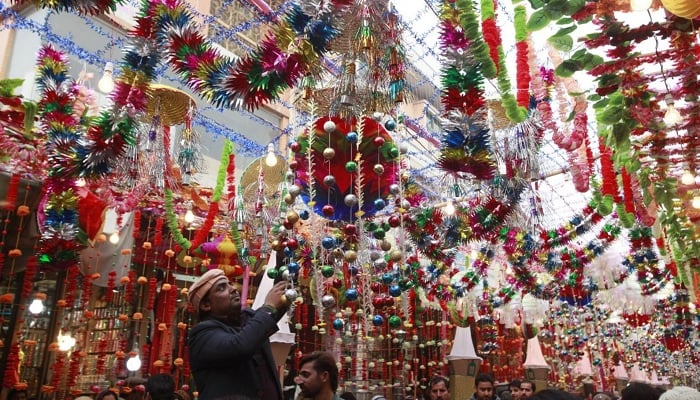Pakistan is observing Eid Milad-un-Nabi, the birth anniversary of the Holy Prophet Muhammad (PBUH), with deep reverence today, the 12th of Rabi-ul-Awal. The sacred day marks a national reaffirmation of allegiance to the Prophet (PBUH), with citizens across the country committing to transform their lives in accordance with his divine teachings and Sunnah. The celebrations manifest in vibrant displays of faith, with cities illuminated by colourful lights, streets decorated, and communities sharing food and sweets, embodying the spirit of compassion and joy.
Marking the significant 1500th birth anniversary, the day was inaugurated with a 31-gun salute in Islamabad and 21-gun salutes in provincial capitals. The nation is witnessing a series of events, including religious conferences, seminars, and Mahafil-e-Milad, organized by government bodies, community groups, and religious committees to honour the life and legacy of the Prophet (PBUH), who remains a beacon of light for all humanity.
In a special message, Prime Minister Shehbaz Sharif vowed to rebuild Pakistan in light of the Prophet’s (PBUH) golden teachings, emphasising unity, justice, and peace. He declared that the life of the Prophet (PBUH) provides a complete model for governance, economics, and social values. The PM stressed the urgent need to familiarise the youth with the Seerat-un-Nabi to guide them through modern challenges, adding that the anniversary is being observed as the ‘Year of Rahmatul-lil-Alameen’ in line with parliamentary resolutions.
Echoing the sentiment, President Asif Ali Zardari greeted the nation and the Muslim Ummah, urging the implementation of the Prophet’s universal principles of justice, mercy, and brotherhood into the country’s social and political structures. He stated that the solutions to contemporary challenges like extremism and social unrest lie in the light of the Prophet’s (PBUH) life. Both leaders concluded with prayers for Pakistan’s safety, unity, and for the ability to live lives of obedience and love for the Holy Prophet (PBUH).














